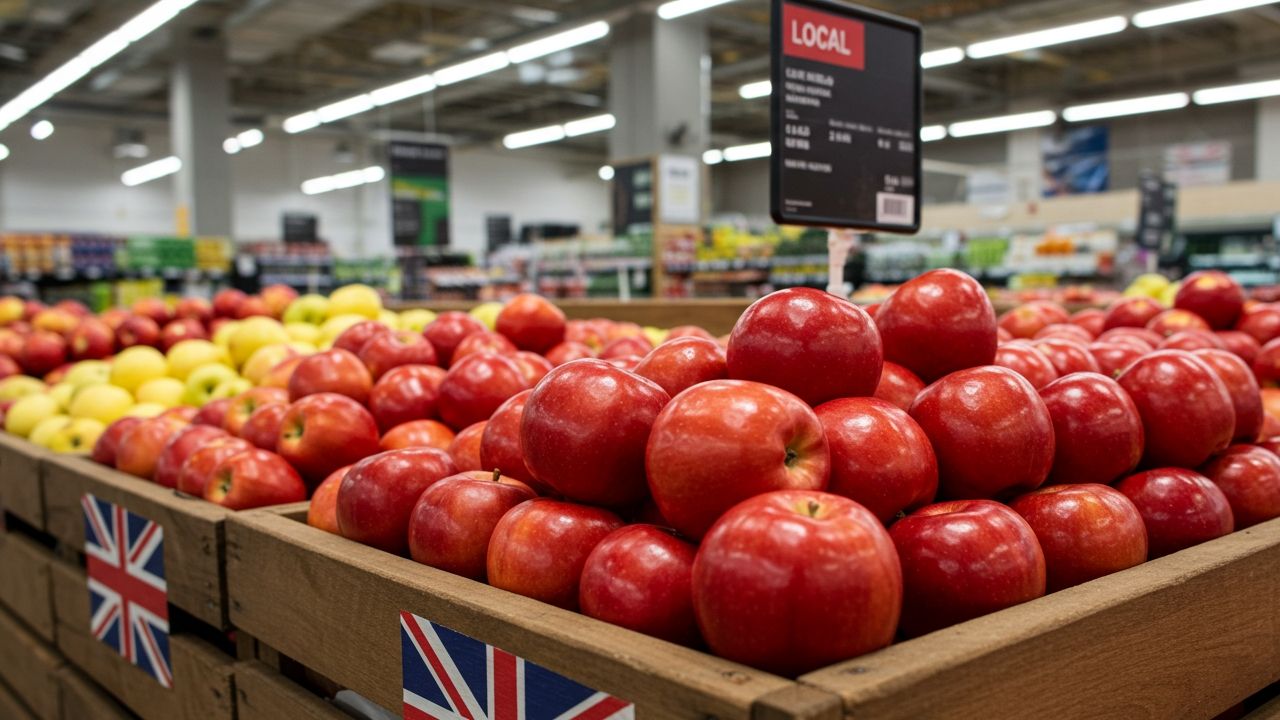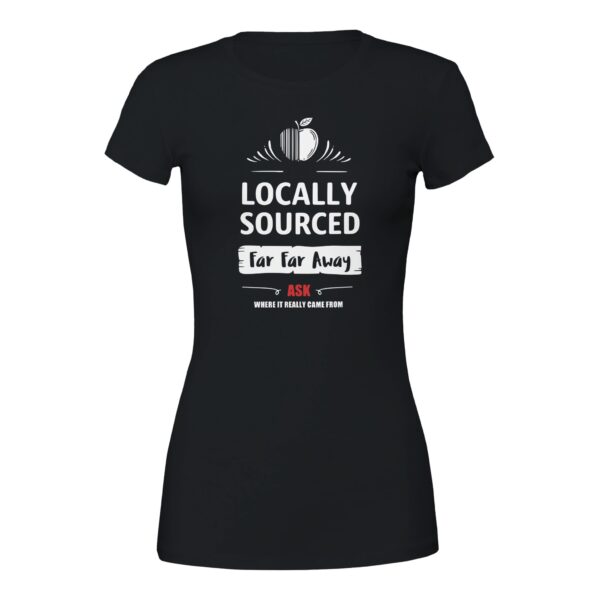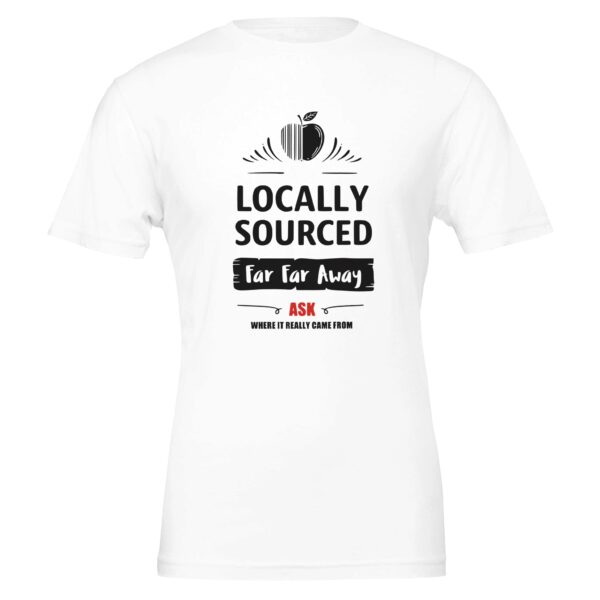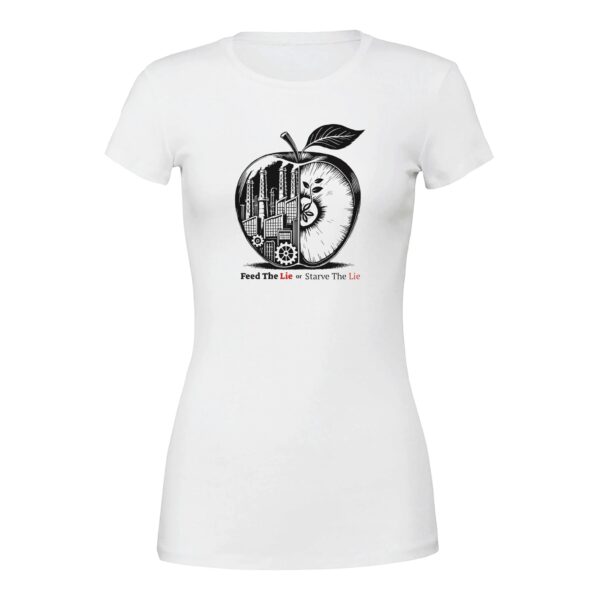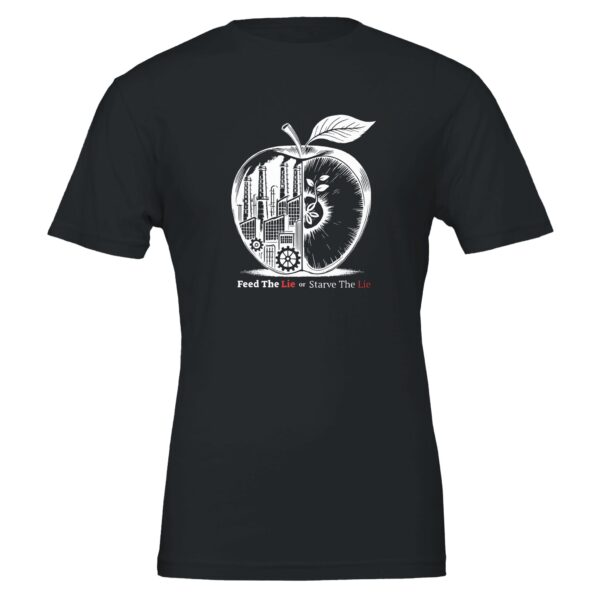How Supermarkets Sell the Illusion of Local Food — and Why We Keep Believing it
In supermarkets across the UK, packaging tells us everything we want to hear. “From trusted UK farms.” “Locally sourced.” “Grown with care.” Boxes of eggs and trays of vegetables rest beneath chalkboard-style signs and rustic fonts, carefully designed to feel handmade, homegrown, and heartfelt. A Union Jack printed in the corner seals the message: this is good, honest British food.
But often, it’s not. Not really.
This illusion—of local, ethical, farm-fresh food—is farmwashing: a marketing tactic that uses pastoral language, fictional farm names, and suggestive imagery to create a sense of trust and traceability. It’s not technically false, but it’s often far from true. The food may have come from overseas, been processed industrially, or passed through supply chains with no direct connection to any local farm at all.
Still, we buy it. And that’s where the story begins.
What Farmwashing Really Does
Farmwashing doesn’t just sell food—it sells a feeling. A story. The sense that we’re choosing something local, healthy, and real.
It works because it aligns with our values. Most of us care about how and where our food is grown. We want to support local farms, shop responsibly, and make ethical choices—and supermarket marketing is built to tap into precisely that. Instead of changing how they operate, they dress up global supply chains to make us feel better about what we’re buying.
It costs supermarkets less to import apples from the southern hemisphere than to source them from UK farms. It’s easier to rebrand mass-farmed dairy as part of a “family farm” range than to restructure the supply chain. These strategies work like magic for marketing—but not for truth. So, do they actually support local farms and consumers—or just boost corporate profits?
So, the gap between what we believe we’re buying—and what we’re actually buying—gets filled not with action, but with illusion.
Where the Power Really Is
It might seem like supermarkets hold all the power—and we don’t have much say. But so much of that power depends on what we choose to buy every day.
You’re not outside the system—you shape it. That’s power. And it’s yours.
Every time you shop, you’re casting a vote—for what supermarkets will stock, how they’ll source it, and which stories they’ll keep telling. Whether conscious of it or not, you’re shaping whether the future looks like illusion or truth.
Why It Matters
It’s not just about misleading messages. It’s about the cost of convenience.
When we buy the illusion, local farms lose market share to industrial producers.
According to a 2024 survey by Riverford Organic Farmers—part of their “Farmers Against Farmwashing” campaign—61% of British farmers trading with supermarkets feared losing their farms within 18 months. Yet, supermarket aisles remained filled with “local,” “ethical,” and “British” claims. The tension is evident: one story is being sold, while the real one is being hidden.
The illusion is comforting. But comfort isn’t the same as truth.
Because behind every label that misleads, there’s a real UK farm losing ground.
The Clash We Live With
Farmwashing isn’t just a corporate trick. It’s a shared contradiction—between the systems we say we want and the ones we keep funding.
That’s the clash: comfort vs truth—propped up by wilful blindness. The kind where we sense something’s off, but choose to look away. And no supermarket can solve that for us.
What You Can Do
Recognising farmwashing isn’t a call for guilt. It’s a call for truth.
You don’t have to shop perfectly. But you can shop with your eyes open.

Look beyond the label. Ask: Where did this really come from? Ask why strawberries are on sale in January. Or when you see the Union Jack, ask: does this represent the farmer—or just the marketing?
Choose the food you want. Choose the ease if you need to. But do it knowingly.
It’s like wearing a message on a T-shirt—not to show off, but to remind yourself: don’t pretend not to see it.
A Bigger Picture
Corporations are getting more competent at using psychology to shape our habits—and while some politicians bend to pressure, others actively protect the status quo. Still, the most immediate form of accountability lies with us.
We can reshape what the market rewards when we pay with our money and our attention. Informed, conscious choices can drive ethical businesses to evolve, pushing misleading systems to fade.
Even our smallest buying decisions shape the system—especially when they echo through many. What thrives, what changes, what disappears—still depends, in part, on you.
The Last Quiet Truth
Farmwashing isn’t just a marketing strategy. It’s a mirror.
It reflects the gap between what we say matters and what we do when it’s inconvenient. But that’s not a reason to disengage. It’s a reason to pay attention.
So choose what you choose. Just do it knowingly.
Because once you’ve seen the illusion, continuing to believe it becomes its own kind of story.
And if you keep buying into it—that’s your choice.
Just don’t pretend it doesn’t apply to you—just because you’re only buying one apple.
A Story You Can Wear
T-Shirts to Express Yourself
FROM HERE(ISH)
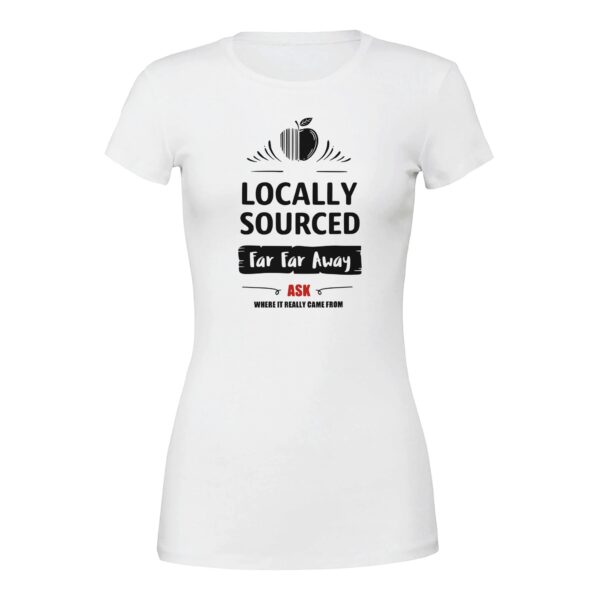
FROM HERE(ISH)
Crossroads Collection ♀
Price range: £25.00 through £29.00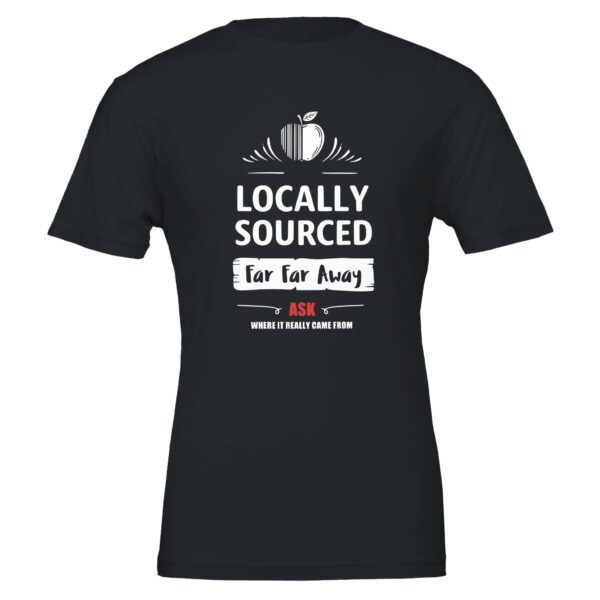
FROM HERE(ISH)
Crossroads Collection ♂
Price range: £24.00 through £28.00ONE APPLE
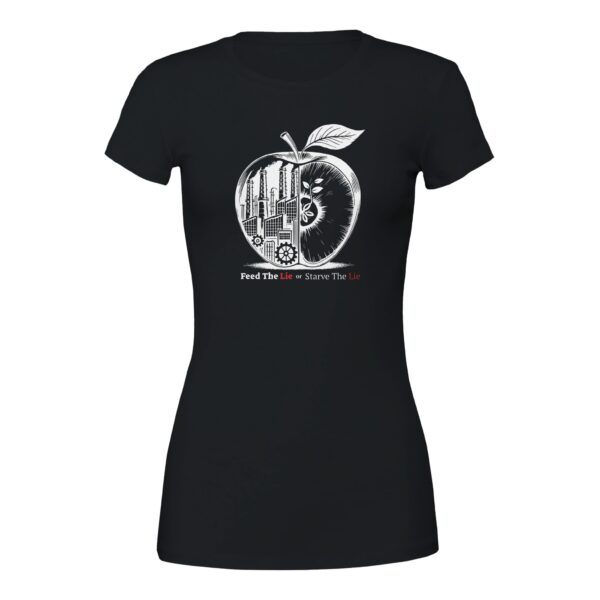
ONE APPLE
Crossroads Collection ♀
Price range: £25.00 through £29.00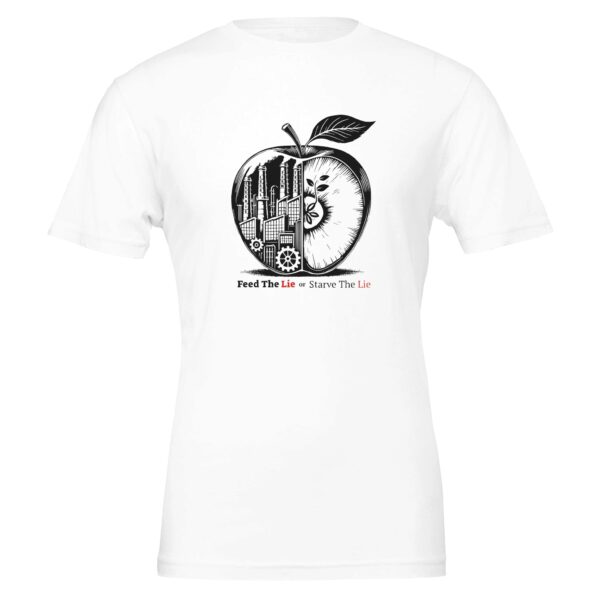
ONE APPLE
Crossroads Collection ♂
Price range: £24.00 through £28.00

